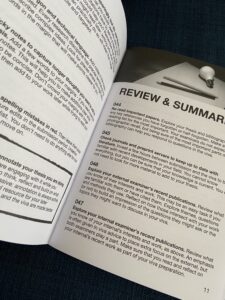A Little Update
In two days my teeny-tiny Kickstarter campaign to make a helpful little guide for the viva will finish. The campaign has been a lovely success and I’ll soon be producing a print run for 101 Steps To A Great Viva.
But I don’t know how many copies to make yet as there’s still time for a few more backers!
Maybe someone like you? If you’re looking for a clear, action-focussed guide to what you can do to get ready for your viva, then 101 Steps To A Great Viva could be what you’re looking for. It’s simple, direct and will be available very soon to send through the post.
I’ve been happily writing updates every few days over the last week as I describe the guide, the editing process and a neat little extra that will be included for backers if we reach a stretch goal I’ve set. Fundraising finishes on Wednesday 31st May at 5pm, in just over two days. I’ll have copies available to buy afterwards, but the Kickstarter is the only place you can get the additional rewards I’m offering. Backing the campaign and pledging support ensures you will get a copy of the guide – and you’ll be one of the first to get one too!
Please, if you’ve not looked already, take a look, tell a friend, share the campaign with others or support the campaign if you can. I’m thrilled to have made 101 Steps To A Great Viva and can’t wait to send it out into the world.
I hope I’ll send a copy to you.
Thank you for reading!
Nathan

